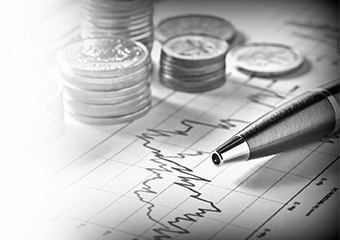Main results of fiscal policy
Main indicators
GDP increased 2.3 times
1991-2016
2017-2020
Expected results in 2030
- The World Bank forecasts that Uzbekistan's economic growth in 2021 and 2022 will reach 4.8% and 5.5%, respectively, and the EBRD - 5.6% in 2021 and 6% in 2022. The ongoing economic reforms are already having a tangible positive effect, which will only intensify in the context of post-pandemic recovery of the world economy. According to the forecasts of the Centre for Economic Research and Reform under the Administration of the President of the Republic of Uzbekistan, the average annual growth rate of the country's GDP until 2030 will be 6-7%. It is expected that GDP will reach 100 billion US dollars over the next 5 years.
1991-2016
- GDP per capita was 1,068 US dollars
2017-2020
- GDP per capita reached 1,700 US dollars
Expected results in 2030
- GDP per capita will reach 2,500 US dollars in 2025 and 4,200 US dollars in 2030
Budget revenues increased by 2.7 times
1991-2016
- in 2016 – 41 trillion soums
2017-2020
- During the period 2017-2020, the revenues of the state budget as a whole increased by 2.7 times. At the same time, revenues from direct taxes increased 3.9 times, indirect taxes - 1.8 times, taxes on resources and property tax - 3.1 times. The growth of budget revenues was mainly due to an increase in the number of taxpayers. As a result, the state budget revenues in 2020 increased to 158.9 trillion soums
Expected results in 2030
- Following the fiscal strategy of the Republic of Uzbekistan for 2021-2023, measures aimed at increasing economic growth by 5.1% in 2021, by 5.8% in 2022 and by 5.4% in 2023 are determined
Gold and foreign exchange reserves (billion US dollars)
1991-2016
- in 2016 – 25 billion US dollars
2017-2020
- As of June 1, 2021, it is 35.5 billion US dollars
Tax reform
1991-2016
- The norms established in the old Tax Code led to the "growth of the shadow economy."
2017-2020
- One of the key reforms aimed at reducing the tax burden and simplifying the tax system was introducing a new version of the Tax Code. Since 2018, a course has been taken to phase out tax benefits and preferences. With the introduction of the new version of the Tax Code from the first day of 2020, most tax benefits were abolished. But COVID-19 has forced the government to turn to tax breaks as part of an unprecedented government package of incentives to fight the pandemic to support the population and economy
Expected results in 2030
- Further improvements in tax policy will continue in the coming years. In particular, the role of environmental taxes remains insignificant, which requires increasing the ecological focus of taxation. Important areas of tax reform will also be: reducing tax pressure on enterprise spending, strengthening the steam-distributive function of property taxes, stimulating investment and innovation
Types of tax audit reduced by 4 times
1991-2016
- Was 13
2017-2020
- Reduced to 3
Single social payment rate
1991-2016
- It was 15% for small enterprises and 25% for large enterprises, except for budgetary organizations and state-owned enterprises
2017-2020
- Reduced to 12%
Income tax rate
1991-2016
- Was 14%
2017-2020
- Reduced to 12%
Value-added tax rate
1991-2016
- Was 20%
2017-2020
- Reduced to 15%
The property tax rate of legal entities
1991-2016
- Was 5%
2017-2020
- Reduced to 2%
Types of taxes
1991-2016
- Was 13
2017-2020
- Reduced to 9






